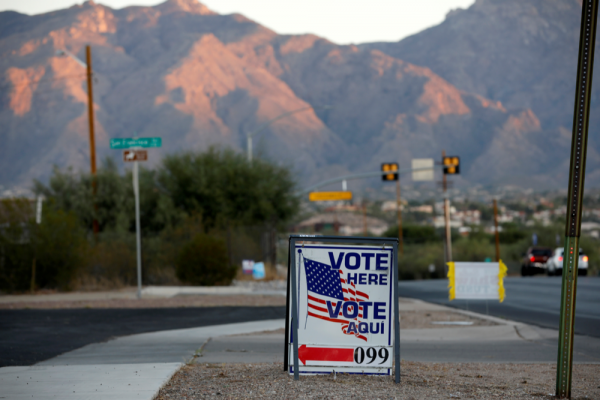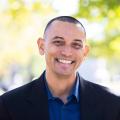On July 1, as many people in the United States prepared for the holiday weekend, the Supreme Court’s conservative 6-3 majority upheld two laws that restrict voting in Arizona. The first law the court upheld disenfranchises voters if they cast a ballot in the wrong precinct, invalidating not just their votes for local races, but also their entire ballot, including votes cast in U.S. presidential elections or Senate races, even though all eligible voters in Arizona can vote in those races regardless of residence. The other law upheld makes it a crime for anyone but a family member or caregiver to deliver another voter's ballot.
This ruling — Brnovich v. DNC — was the third time in the last eight years that the Supreme Court’s conservative majority has acted to significantly weaken the 1965 Voting Rights Act. The court previously weakened the law in its rulings on Shelby County v. Holder in 2013 and Abbott v. Perez in 2018. In upholding the Arizona laws, Justice Samuel Alito, writing for the majority, introduced a new and somewhat confusing five-factor standard by which to evaluate whether voting laws will result in a disparate impact on voters of color.
The ruling weakens Section 2 of the 1965 Voting Rights Act, making it more difficult for advocates to prevail in lawsuits challenging voting restrictions because of their disparate impact on voters of color. The ruling will also embolden state legislatures around the country to pass further voter suppression laws, often under the false pretense of protecting election security.
In the dissenting opinion to this ruling, Justice Elena Kagan captures both the hypocrisy of this ruling and the depth of what is at stake: “What is tragic here is that the Court has (yet again) rewritten — in order to weaken — a statute that stands as a monument to America’s greatness, and protects against its basest impulses.”
As many people in the United States hosted barbecues and set off fireworks to celebrate the nation’s 245th birthday, a diverse group of Christian leaders organized by Red Letter Christians gathered virtually to read Frederick Douglass’ 1852 speech, “What, to the Slave, is the Fourth of July?” In this speech, which I believe should be a key part of every U.S. history and civics curricula, Douglass describes his respect for those who shaped the nation’s founding principles of liberty and justice. At the same time, Douglass exposes the glaring hypocrisy caused by the nation’s embrace of slavery and the degree to which the U.S. project has been haunted and undermined ever since: “The sunlight that brought life and healing to you, has brought stripes of death to me,” he said. “This Fourth of July is yours, not mine. You may rejoice, I must mourn.”
Reflecting on Douglass’ words, I wonder what he would say to our nation today, particularly in light of our ongoing struggle for racial justice. I imagine him saluting considerable progress while excoriating all the ways in which Black and brown lives are still so often criminalized, devalued, and dehumanized. I suspect he would be filled with righteous indignation about growing efforts to suppress and disenfranchise voters of color through a concerted strategy to shrink the electorate and make it more difficult to vote.
We are facing a dangerous backlash and counter-revolution to last summer’s racial awakening in response to the brutal killings of George Floyd, Breonna Taylor, and so many others. While I’m grateful that Congress overwhelmingly approved making Juneteenth a federal holiday, in the same breath, many of these same elected officials refuse to acknowledge (let alone make amends for) how the history of slavery and white supremacy — and its mutated forms of racial terror, including Jim Crow segregation, mass incarceration, racialized policing, and voter disenfranchisement — continue to reverberate through our present and into our future.
Our democracy is not a given; it has been contested since our nation’s founding and must be fought for, defended, and constantly expanded. The right to vote represents the lifeblood of our democracy; it is what gives democracy its legitimacy and power. As Rep. John Lewis so often reminded us, voting “is the most powerful nonviolent tool in our possession.”
I believe the Brnovich v. DNC ruling makes it even more imperative to pass federal legislation that will restore teeth to the 1965 Voting Rights Act; since voter suppression has been upheld in the Supreme Court, we need a federal solution.
Morally, suppressing the right to vote is a direct assault on both our civic equality and our Christian conviction that all people are made in the image of God. This dangerous inflection moment for our democracy requires that we tap into the boldness and truth-telling of the biblical prophets who never minced words when challenging hypocrisy and unjust laws: “Woe to those who make unjust laws, to those who issue oppressive decrees, to deprive the poor of their rights and withhold justice from the oppressed of my people,” warned the prophet Isaiah (10:1-2). We can also pastorally appeal to a shared commitment to justice and equality, which must supersede the thirst to hold onto power and the tendency of the powerful to favor incremental change.
This perilous moment calls for a modern-day equivalent of the Freedom Summer, which, at great risk, registered thousands of Black voters in the deep South in the summer of 1964 and galvanized public awareness and political will behind the need for a Voting Rights Act. With a Supreme Court that continues to uphold an unequal and racialized system, our own efforts will need to stretch into the fall, educating people about their voting rights, explaining that our democracy is at stake, and galvanizing unprecedented pressure to pass the For the People Act and an expanded John Lewis Voting Rights Advancement Act. In other words, we need to out-organize efforts to discourage or restrict voting.
To this end, Sojourners and the Skinner Leadership Institute, along with other multi-faith and multi-racial partners, recently launched the “Faiths United to Save Democracy” campaign. The campaign builds on our Lawyers and Collars and Turnout Sunday initiatives, which mobilized thousands of clergy in nine states to protect the right to vote in the 2020 election — work that is even more urgent given the continued cancerous effects of the “big lie” that the last election was stolen and the torrent of nearly 400 laws that have been proposed in 48 states that would further suppress the votes of historically disenfranchised communities. It was incredibly inspiring to see such a diverse group of leaders join together in common cause to protect the right to vote, including faith leaders like Barbara Williams-Skinner, Rabbi Jonah Pesner, Rev. Hyepin Im, Rev. Otis Moss III, Rev. Jim Wallis, and Rev. Eli Valentin, among many others. I hope you will support this nonpartisan and pro-democracy campaign, which will register voters, ensure that voters can secure voters IDs in states that now require them, bolster voter turnout, and work to protect the right to vote.
So what does the Fourth of July mean to me? Yes, it means a moment for celebrating our nation and its highest ideals, but it is also a moment to rededicate ourselves to forming a more perfect union by striving tirelessly to become a more perfect and just democracy. And now the most imperative fight is to protect the sacred right to vote and ensure all eligible voters are able to make their voices heard in this imperfect union.
Got something to say about what you're reading? We value your feedback!





